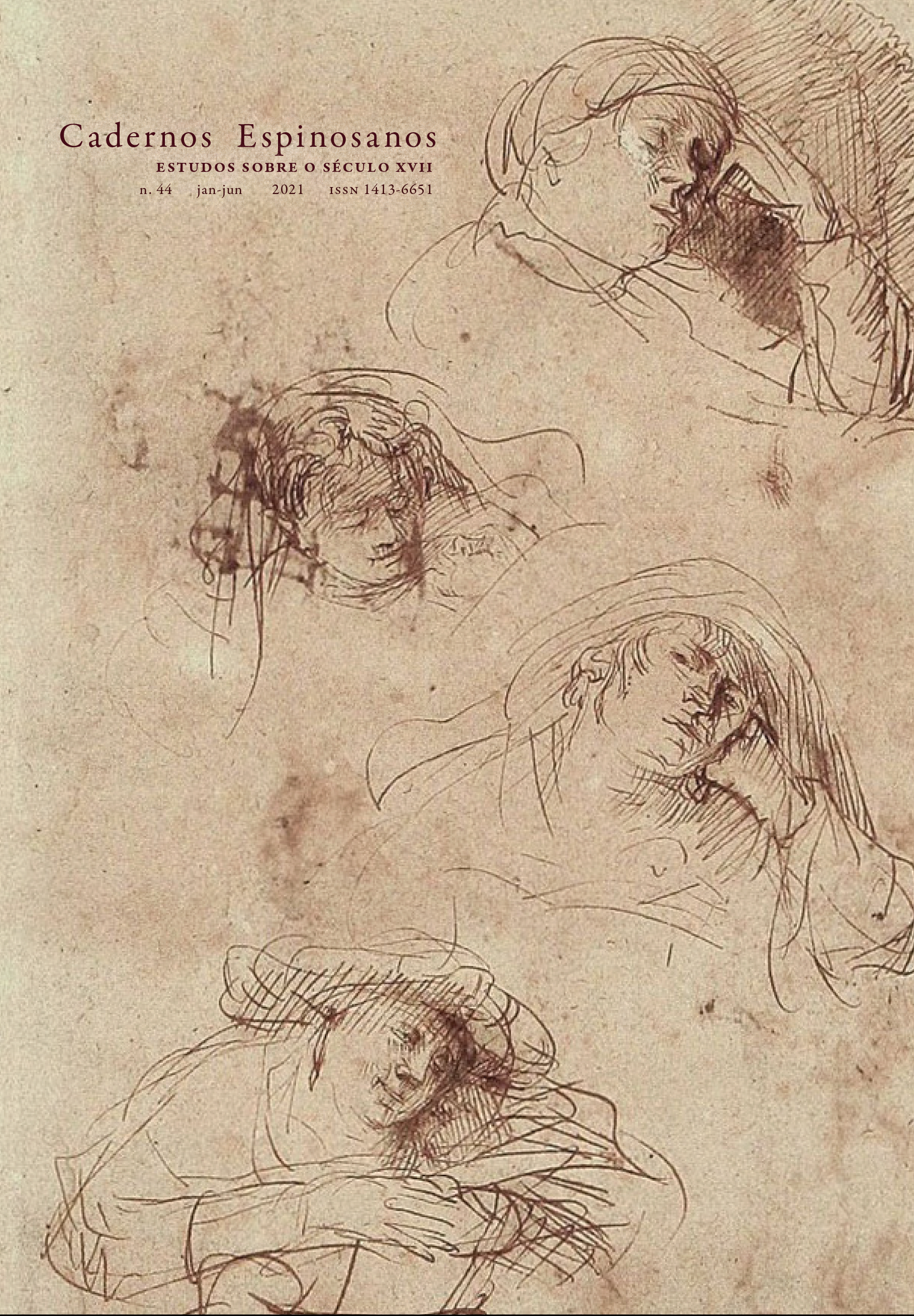Hobbes and the passions of the rebellion
DOI:
https://doi.org/10.11606/issn.2447-9012.espinosa.2021.187894Keywords:
Rhetoric, Politics, Eloquence, Passion, RebellionAbstract
As a continuation of our studies regarding the use of rhetoric in the thought of Thomas Hobbes, the present study deals with the relation between eloquence, passions and rebellion in The Elements of Law, Natural and Politic. Thus, it is explained how the leaders of sedition and rebellion are necessarily, according to Hobbes, “eloquent men”. The aim is not only to separate the rhetorical tradition from the foundation of political sciences, but also to point out the supposed damages caused by orators in civil life. Therefore, the conflicting and often contradictory relation between demonstration and persuasion in the politics of the 17th century is questioned, as well as the binding and constitutive role of passions.
Downloads
References
CÍCERO. (1952). Orações. Trad. Br. António Joaquim. São Paulo: W. M. Jackson INC.
FUMAROLI, M. (2002). L’Età dell’eloquenza. Trad. it. Emma Bas, Margherita Botto, Graziella Cillario. Milano: Adelphi Edizioni.
HOBBES, T. (1992). Do Cidadão. Trad. Renato Janine Ribeiro. São Paulo: Martins Fontes.
HOBBES, T. (2010). Os Elementos da Lei Natural e Política. Trad. Bruno Simões. São Paulo: Martins Fontes.
HOBBES, T. (1979). Leviatã. Col. Os Pensadores. Trad. João Paulo Monteiro e Maria Beatriz Niza da Silva. São Paulo: Abril Cultural.
MEYER, M. (2007). A Retórica. Trad. br. Marly N. Peres. São Paulo: Ática.
SKINNER, Q. (1999). Razão e Retórica na filosofia de Hobbes. Trad. Vera Ribeiro. São Paulo: Editora unesp.
Downloads
Published
Issue
Section
License
Copyright (c) 2021 Fran de Oliveira Alavina

This work is licensed under a Creative Commons Attribution-NonCommercial-ShareAlike 4.0 International License.
Autores que publicam nesta revista concordam com os seguintes termos:
- Autores mantém os direitos autorais e concedem à revista o direito de primeira publicação, com o trabalho simultaneamente licenciado sob a Licença Creative Commons Attribution que permite o compartilhamento do trabalho com reconhecimento da autoria e publicação inicial nesta revista.
- Autores têm autorização para assumir contratos adicionais separadamente, para distribuição não-exclusiva da versão do trabalho publicada nesta revista (ex.: publicar em repositório institucional ou como capítulo de livro), com reconhecimento de autoria e publicação inicial nesta revista.
Authors who publish in this journal agree to the following terms:
b. Authors are authorized to take on additional contracts separately, to non-exclusive distribution of the article published in this journal (ex.: to publish in institutional repository or as part of a book), with an acknowledgment of its initial publication in this journal.


